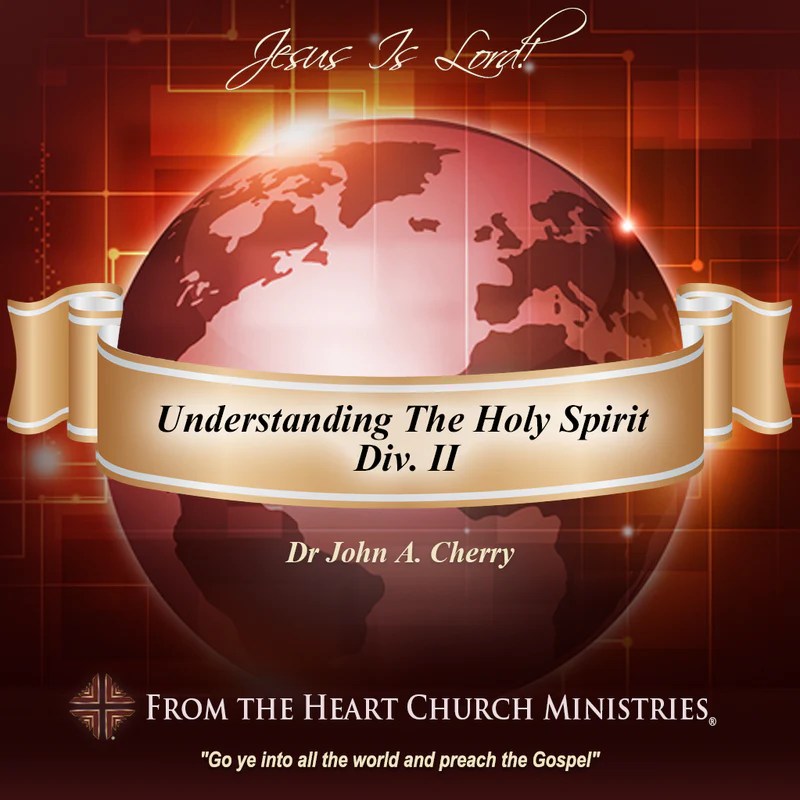The holy spirit cwv 101 – Embark on a journey to discover the Holy Spirit, the enigmatic force that connects us to the divine. From its biblical origins to its transformative power, we unravel the mysteries surrounding this extraordinary entity in CWV 101.
Within the Trinity, the Holy Spirit weaves an intricate tapestry, bridging the gap between God the Father and Jesus Christ. Explore the manifestations of the Holy Spirit in our lives, empowering us with gifts and guiding us through worship and prayer.
Definition of the Holy Spirit

In Christian theology, the Holy Spirit is the third person of the Trinity, alongside God the Father and God the Son (Jesus Christ). It is believed to be the active presence of God in the world, guiding, inspiring, and empowering believers.
The Holy Spirit in CWV 101 can be likened to a guiding force, illuminating our path through life. Just as students studying for the APES Unit 2 Study Guide seek knowledge to understand the natural world, the Holy Spirit provides us with wisdom and guidance in our spiritual journey, leading us towards a deeper connection with God.
The concept of the Holy Spirit is rooted in the Bible, with references in both the Old and New Testaments. In the Old Testament, the Holy Spirit is often described as the breath or wind of God, associated with power, guidance, and wisdom.
In the New Testament, the Holy Spirit is depicted as a helper, comforter, and guide for believers.
Biblical References
- Genesis 1:2: “And the Spirit of God was hovering over the face of the waters.”
- Acts 2:1-4: “When the day of Pentecost had come, they were all together in one place. And suddenly a sound came from heaven like the rush of a mighty wind, and it filled all the house where they were sitting. And there appeared to them tongues as of fire, distributed and resting on each one of them.
And they were all filled with the Holy Spirit and began to speak in other tongues, as the Spirit gave them utterance.”
Historical Context
The doctrine of the Holy Spirit has been a subject of theological debate and discussion throughout Christian history. Early Church fathers such as Irenaeus and Tertullian played a significant role in shaping the understanding of the Holy Spirit as the third person of the Trinity.
The Council of Constantinople in 381 AD affirmed the Holy Spirit’s divinity and included it in the Nicene Creed. However, disputes and controversies regarding the nature and role of the Holy Spirit continued to arise, leading to various theological interpretations and divisions within Christianity.
Role of the Holy Spirit in the Trinity

The Holy Spirit is the third person of the Trinity, alongside God the Father and Jesus Christ. The Trinity is the doctrine that there is one God in three persons, each of whom is fully God and distinct from the others.The
Holy Spirit is not a separate God but is one with the Father and the Son. The three persons of the Trinity are co-equal and co-eternal, and they share the same divine nature. The Holy Spirit is often referred to as the “Spirit of God” or the “Spirit of Christ.”
He is the one who convicts us of sin, leads us to repentance, and indwells us when we become Christians.
Relationship with God the Father and Jesus Christ
The Holy Spirit is sent by the Father and the Son to indwell believers. He is the one who makes us aware of God’s presence and power in our lives. The Holy Spirit also helps us to understand the Bible and to apply its teachings to our lives.
He is our guide, our comforter, and our helper.
Manifestations of the Holy Spirit

The Holy Spirit manifests itself in a variety of ways in the lives of believers. These manifestations are often referred to as the gifts of the Spirit. Some of the most common gifts of the Spirit include:
- Speaking in tongues
- Prophecy
- Healing
- Miracles
- Discernment of spirits
- Wisdom
- Knowledge
- Faith
- Love
- Joy
- Peace
- Patience
- Kindness
- Goodness
- Gentleness
- Self-control
These gifts are not given to every believer, but they are available to all who ask for them. The Holy Spirit gives these gifts to believers so that they can build up the body of Christ and share the gospel with the world.
Speaking in Tongues
Speaking in tongues is one of the most well-known manifestations of the Holy Spirit. When a person speaks in tongues, they are speaking in a language that they have not learned. This language is often not understood by anyone else, but it is a way for the person to communicate with God.
Speaking in tongues is a controversial gift, and there are many different opinions about it. Some people believe that it is a sign of the baptism of the Holy Spirit, while others believe that it is a sign of immaturity.
Regardless of one’s opinion, speaking in tongues is a real phenomenon that has been experienced by many believers throughout history.
Gifts of the Holy Spirit

The Holy Spirit, the third person of the Trinity, bestows an array of spiritual gifts upon believers, empowering them to serve and edify the body of Christ. These gifts are not solely for personal benefit but are intended to enhance the collective spiritual growth and ministry of the Church.
The Bible identifies several categories of spiritual gifts, each with its unique purpose and significance. These gifts include:
Utterance Gifts
- Prophecy:Speaking forth the word of God, revealing God’s will and guidance.
- Tongues:Speaking in a language unknown to the speaker, often used in prayer or worship.
- Interpretation of Tongues:Translating the message spoken in tongues into a known language.
Serving Gifts
- Serving:Assisting in practical ways, such as providing food, hospitality, or transportation.
- Helps:Offering assistance and support in various tasks within the church.
- Administration:Leading and managing the affairs of the church, including planning, budgeting, and decision-making.
Teaching Gifts
- Teaching:Imparting knowledge and understanding of Scripture and Christian doctrine.
- Exhortation:Encouraging and motivating believers to grow in their faith and walk with God.
Gifts of Power
- Miracles:Performing supernatural acts of healing, deliverance, or provision.
- Healing:Restoring physical or emotional health through the power of God.
- Discernment of Spirits:Distinguishing between the Holy Spirit and other spirits, both good and evil.
Miscellaneous Gifts
- Wisdom:Understanding God’s ways and applying them to life.
- Knowledge:Having a deep understanding of spiritual truths.
- Faith:A strong belief in God and His promises.
These gifts are not distributed equally among all believers, but are given according to the Holy Spirit’s will and the specific needs of the church. As believers exercise their spiritual gifts, they glorify God, build up the body of Christ, and contribute to the spread of the Gospel.
The Holy Spirit in Worship and Prayer: The Holy Spirit Cwv 101

The Holy Spirit plays a crucial role in Christian worship and prayer. It guides believers in their communion with God, enabling them to experience His presence and engage in meaningful worship.
Spiritual Guidance and Inspiration
The Holy Spirit serves as a spiritual guide, leading believers into deeper communion with God. It illuminates Scripture, revealing its hidden truths and making it applicable to their lives. The Spirit also inspires prayers, helping believers express their hearts to God in a profound and intimate way.
Through the Holy Spirit, Christians can connect with God in a personal and transformative manner.
The Holy Spirit and Mission

The Holy Spirit plays a vital role in empowering believers for mission and evangelism. It is through the Spirit’s power that believers are equipped with the gifts, abilities, and boldness to share the gospel and make disciples.
Throughout history, the Holy Spirit has worked in countless missionary endeavors, empowering ordinary people to accomplish extraordinary things for the sake of the kingdom of God. Here are a few examples:
The Pentecost Event
At Pentecost, the Holy Spirit descended upon the disciples, empowering them to speak in tongues and boldly proclaim the gospel to the crowds gathered in Jerusalem. This event marked the beginning of the church’s mission to spread the good news to all nations.
The Apostle Paul
The apostle Paul was a powerful example of how the Holy Spirit can empower believers for mission. Despite facing persecution and hardship, Paul traveled extensively, establishing churches and spreading the gospel throughout the Roman Empire. He attributed his success to the power of the Holy Spirit working within him.
Modern Missionaries
Today, the Holy Spirit continues to empower missionaries around the world. From sharing the gospel in remote villages to providing medical care and education, missionaries rely on the Spirit’s guidance and strength to carry out their work.
The Holy Spirit and Eschatology
The Holy Spirit plays a pivotal role in the end times, as revealed in various biblical teachings. The Spirit’s presence and activity during this period have significant eschatological implications.
The Holy Spirit’s role in eschatology is multifaceted. First, the Spirit is involved in the gathering and equipping of God’s people for the end times. The Spirit empowers believers with spiritual gifts and helps them grow in faith and maturity.
This preparation is crucial for facing the challenges and trials that will accompany the end times.
The Holy Spirit and the Tribulation, The holy spirit cwv 101
The Holy Spirit will provide comfort, guidance, and strength to believers during the tribulation period. The Spirit will help believers to endure persecution, remain faithful, and witness to the gospel amidst great adversity.
The Holy Spirit and the Second Coming
The Holy Spirit will play a key role in the second coming of Christ. The Spirit will prepare the hearts of believers for Christ’s return and will empower them to participate in the establishment of God’s kingdom on earth.
The Holy Spirit and the New Heavens and New Earth
In the new heavens and new earth, the Holy Spirit will continue to indwell and empower believers. The Spirit will lead believers into a deeper understanding of God and His ways and will guide them in their service to God and others.
Question Bank
What is the role of the Holy Spirit in the Trinity?
The Holy Spirit serves as the bond between God the Father and Jesus Christ, completing the divine Trinity. It is the Spirit that reveals the Father’s will and empowers Jesus’ ministry.
How does the Holy Spirit manifest itself?
The Holy Spirit manifests in various ways, including speaking in tongues, prophecy, healing, and discernment. It can also provide guidance, comfort, and conviction.
What are the gifts of the Holy Spirit?
The Holy Spirit bestows a variety of gifts upon believers, including wisdom, knowledge, faith, healing, and prophecy. These gifts empower us to serve God and build up the Church.